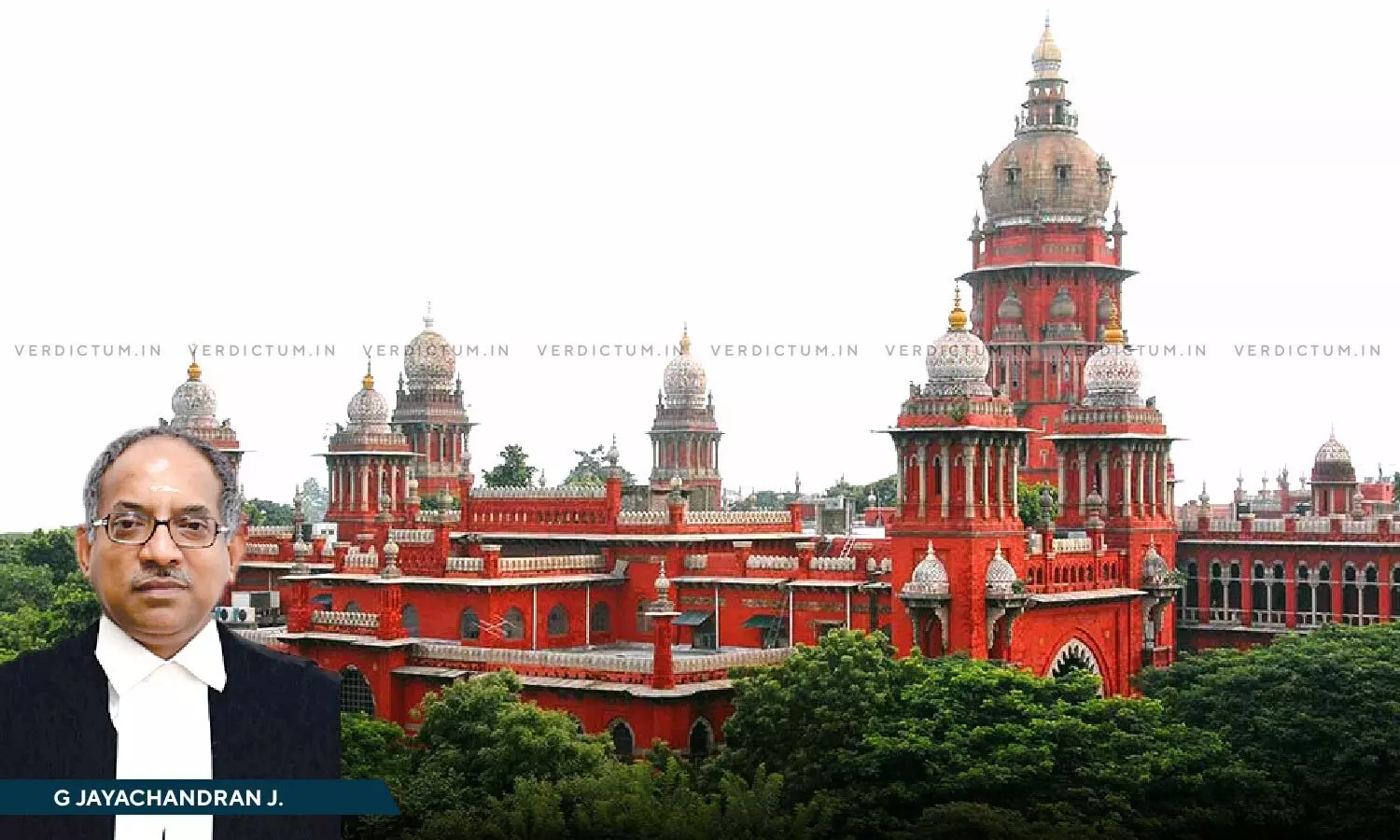
Justice G. Jayachandran, Madras High Court
Madras High Court: In The Absence Of Proof For Living Together Under One Roof, Presumption Of Marital Relationship Cannot Be Drawn.
 |
|The Madras High Court considered the issue of inheritance based on a Will.
The Madras High Court held that, in the absence of proof for living together under one roof, the presumption of a relationship as husband and wife cannot be drawn.
An appeal was filed before the Madras High Court against the order of the trial court denying marital relationship of the deceased and appellant wife and the genuineness of the Will alleged by the appellants.
The Bench of Justice G. Jayachandran observed, “In all the cases cited where the Courts have drawn a presumption in favour of marriage, we find that clinching evidence such as child’s birth certificate, family card or any other official documents clearly showing that the man and woman lived together as husband and wife under one roof. In the instant case, for the marriage alleged to have been solemnised in the year 1991, no documentary evidence is available and the oral evidence has been found to be unreliable. Further, no evidence has been produced to prove joint living or cohabitation. The mere possession of the personal documents of the deceased person will not be sufficient to presume the marital relationship."
Advocate P. Jagadeesan represented the Appellants, while Advocate V. Raghavachari represented the Respondents.
Case Brief
A suit for partition and separate possession of the properties belonging to the deceased based on a Will in favour of appellants were filed. The appellants are siblings. It was claimed that the appellants are the wife and brother-in-law of the deceased and the deceased has bequeathed his properties to the appellants out of love.
However, the said Will in question was denied as false and fabricated and it was contended by the respondent that the appellant-wife was never married to the deceased.
The Appellants contended that the marriage has to be presumed from their conduct and need not be strictly proved as a fact, especially when the events occurred several years ago, i.e. consistent long cohabitation between two persons as husband and wife is sufficient to presume that they are married.
Court’s Analysis
The Madras High Court noted that the alleged Will of the deceased was not registered or signed, despite going to the Sub-Registrar’s Office for the execution of the Will. Since the evidence on record does not prove the due execution of the Will, the appellants cannot sustain their suit for partition based on that Will.
Regarding the marriage between the appellant-wife and the deceased, the Court opined that law presumes in favour of marriage and against concubinage, when a man and woman have cohabited continuously for a number of years. However, such a presumption can be rebutted by leading unimpeachable evidence.
“The case of the plaintiff is not long cohabitation but a valid and formal solemnisation of marriage in the presence of relatives and friends. However, the witnesses for the plaintiffs admitted that there was no marriage invitation, no photographs and no registration of the alleged marriage. In case, there is no direct evidence of the solemnisation of marriage”, the Court added.
The Court further observed that the best evidence to show cohabitation under one roof is the family card, voter identification card or any other official documents, however, the appellants failed to produce any material evidence to prove that they were residing with the deceased.
Accordingly, the Appeal was dismissed.
Cause Title: Alamelu & Ane V. Chinnarja Konar (Died) through K. Selvi
Appearance:
Appellants: Advocate P. Jagadeesan
Respondents: Advocates V. Raghavachari, N. Umapathy
Click here to read/download Judgment